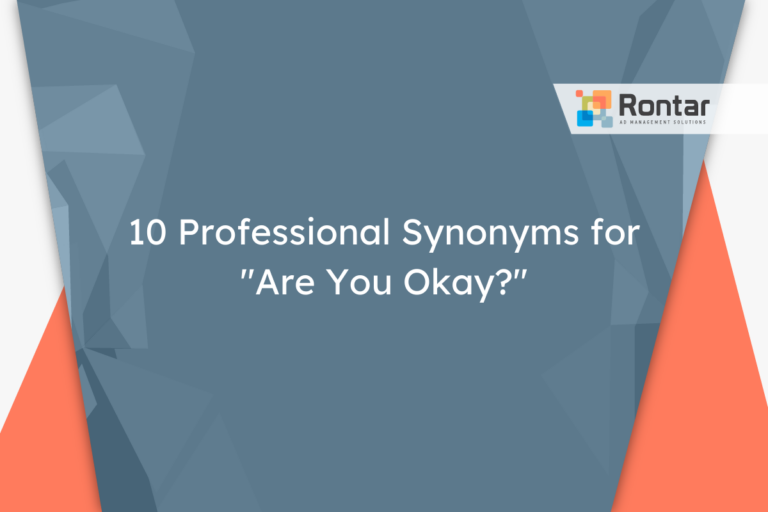8 Alternatives and Synonyms for “Happy to Help”

In today’s fast-paced world, the way we offer help can significantly impact our professional and personal relationships. While the phrase “Happy to Help” has been a go-to for many, its overuse can sometimes dilute the sincerity behind the offer.
Happy to Help: Meaning and Reasons to Avoid Saying It
The phrase “Happy to Help” is commonly used to express willingness and pleasure in assisting others. It conveys a positive attitude and a readiness to provide support or service. Despite its positive intentions, there are several reasons why one might consider avoiding or limiting its use in professional and personal communication.
1. Overuse Dilutes Its Sincerity
When “Happy to Help” is used too frequently, it can start to lose its sincerity. People might begin to question whether the eagerness to assist is genuine or just a routine response.
2. Potential for Misinterpretation
In some situations, particularly in written communication, the tone of “Happy to Help” can be misinterpreted. Instead of coming across as genuine, it might seem insincere or overly enthusiastic to some readers.
3. Lack of Specificity
Although “Happy to Help” is positive, it lacks specificity. It doesn’t convey what type of help is being offered or highlight the person’s specific skills or willingness to undertake certain tasks. This vagueness can sometimes make the assistance seem less valuable.
4. Cultural Differences
Different cultures interpret phrases and expressions in various ways. In some contexts or cultures, using “Happy to Help” might not be appropriate or could be misunderstood, affecting interpersonal and cross-cultural communications.
Alternatives to “Happy to Help”
Finding alternatives to “Happy to Help” can refresh your communication, offering more specific, engaging, or appropriate ways of expressing your willingness to assist. Here are several options to consider for different situations.
1. Eager to Assist
This alternative suggests enthusiasm and readiness to provide help without overusing the common phrase. It’s particularly useful in professional settings.
2. Glad to Be of Service
Using “Glad to Be of Service” adds a touch of formality and is suitable for service-oriented roles or when you’re aiming to express a high level of professionalism.
3. How Can I Support You?
This question not only offers assistance but also invites the other person to specify the kind of help they need, enhancing effective communication and support.
4. Count Me In
“Count Me In” is a more informal and friendly way to say you’re ready and willing to help, making it a great choice for casual or peer-to-peer interactions.
5. At Your Service
This phrase is another formal alternative that conveys a strong dedication to helping others, often used in customer service and hospitality industries.
6. Here to Help
Simple and to the point, “Here to Help” communicates your availability and willingness to assist without sounding overly enthusiastic or insincere.
7. Always Ready to Lend a Hand
This alternative emphasizes your ongoing availability and eagerness to help, suitable for both professional and personal contexts.
8. Looking Forward to Assisting
It indicates a forward-thinking approach and openness to helping in the future, ideal for conversations about upcoming projects or tasks.
By selecting from these alternatives, you can tailor your expression of assistance to fit the tone, context, and relationship, ensuring your willingness to help is communicated effectively and sincerely.
How to Stop Saying “Happy to Help”
Moving away from the routine use of “Happy to Help” requires a conscious effort to diversify your expressions of willingness to assist. By adopting alternative phrases and refining your communication skills, you can convey your eagerness to help in more meaningful ways. Here are strategies to help you make this transition.
1. Reflect on Your Intentions
Consider why you want to help and what you aim to achieve by offering assistance. This reflection can guide you in choosing phrases that more accurately express your intentions and the value you wish to provide.
2. Expand Your Vocabulary
Familiarize yourself with a variety of expressions that convey willingness to assist. Bookmark lists of alternatives or keep them handy for quick reference until they become part of your natural vocabulary.
3. Adjust According to Context
Choose phrases that suit the formality and tone of the situation. Whether in a professional setting, among friends, or in service-oriented roles, select expressions that resonate best with your audience.
4. Ask for Feedback
Get input from colleagues, friends, or mentors on how your expressions of assistance are received. Constructive feedback can help you understand if your alternatives to “Happy to Help” are effective and sincere.
5. Practice Active Listening
Before offering help, ensure you fully understand the request. Active listening can lead you to offer more specific forms of assistance, thereby naturally diversifying your responses to offers of help.
6. Be Specific in Your Offers
Instead of a generic offer to help, specify how you can be of assistance. This specificity not only makes your offer more valuable but also encourages you to use a broader range of expressions.
7. Observe Others
Notice how peers and leaders in your industry or community offer help. You might discover new and effective ways to express assistance that you hadn’t considered before.
By implementing these strategies, you can successfully transition away from saying “Happy to Help” to using a more thoughtful, varied approach in offering your support and assistance.
Final Thoughts
Expressing our willingness to assist others is a core component of effective communication, fostering positive relationships in both personal and professional spheres. While “Happy to Help” is a phrase filled with good intentions, exploring alternatives can enhance the sincerity and impact of our offer to assist. By consciously choosing our words, reflecting on our intentions, and tailoring our approach to the context, we can convey our readiness to support in more meaningful ways. The journey away from habitual phrases like “Happy to Help” invites a richer, more nuanced way of expressing solidarity and willingness to aid those around us. Ultimately, the value of our assistance lies not just in the actions we take but also in the authenticity and thoughtfulness of how we communicate our readiness to help.






